5 things you should never say to someone with cancer, plus 5 things you should
'I thought about it all the time, and I didn’t need to be reminded.'
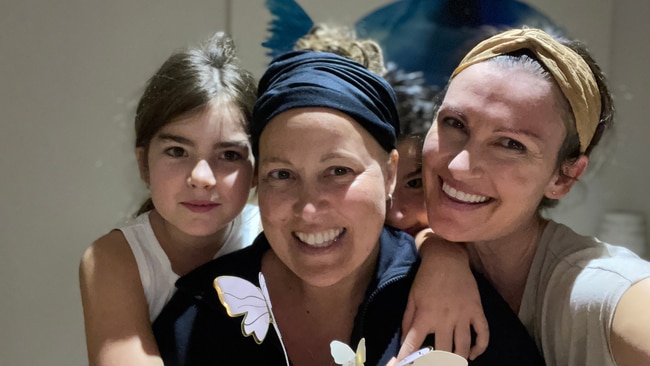
Cancer
Don't miss out on the headlines from Cancer. Followed categories will be added to My News.
Jo Yates provides us with a list of no-go questions to ask someone with cancer, as well as a list of things you should definitely say, based on her own experience with Ovarian cancer in 2021.
If you find out someone you care about has a cancer diagnosis, you may be scared and unsure of what to do. If you have lost someone previously to cancer, it can be a big trigger for you. You know your friend is going to be dealing with a lot right now, and you want to help, but don’t know what to say.
During my treatment for ovarian cancer, I found that a lot of people didn't know how to broach the subject with me. Therefore they would either avoid the topic altogether or when trying to be helpful or empathise inadvertently say something potentially hurtful.
I have pretty thick skin, and understood that my friends and family meant well, but it could be frustrating to have them minimise my feelings or hear something hurtful.
Here are the top five things not to say to avoid unintentionally hurting your friend, as well as my top five suggestions for what you should say.
Like what you see? Sign up to our bodyandsoul.com.au newsletter for more stories like this.
Comments to avoid
1. "My friend/aunt/cousin had ... cancer, they died ... months after diagnosis"
We are kicking off with a biggie, and it blows my mind that people say this to cancer patients. I can understand that perhaps people think the patient will understand their own sadness from losing a loved one, or maybe they feel they are empathising but don't do it!
One of the things that got me through the hardest days of my treatment was remembering that I knew more people that had survived cancer than hadn't.
I know people die of cancer. I thought about it all the time, and I didn’t need to be reminded.
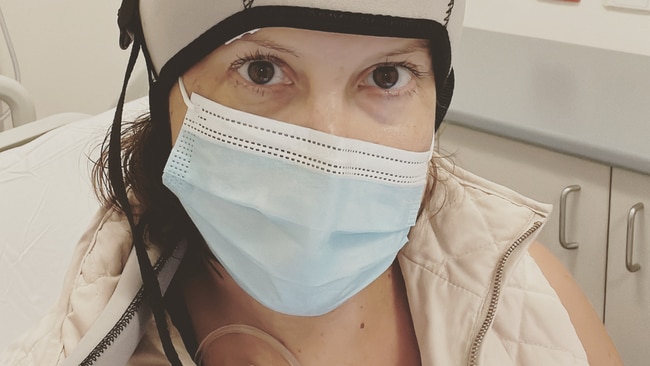
2. "You shouldn't eat ..."
I get that people care and believe they are being helpful with this one. Unfortunately, for the patient, it can bring on feelings of guilt that they have somehow brought their cancer on themselves.
In the day of easy social sharing, there is a lot of misinformation online that certain foods can cause cancer. There is research to show that some food does increase your risk, but please let your friend talk with their medical team and make decisions on what they put into their body during this time based on medical advice.
I don't smoke, have never taken a drug in my life and drink very little, but chocolate is my vice. On hard days chocolate brought me comfort or gave me something to look forward to after chemo.
Well meaning friends making me feel bad about that was the last thing I needed.
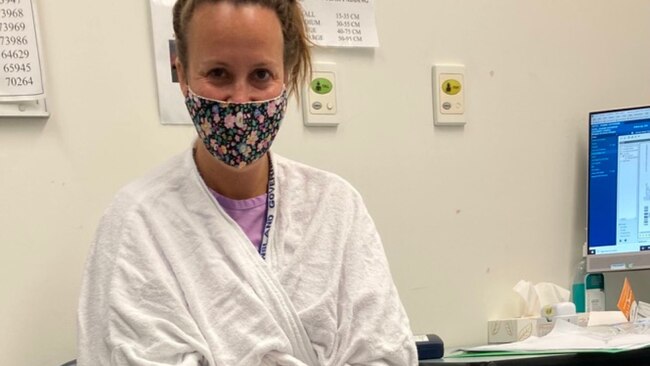
3. "You should do ... It cured someone’s cancer."
Usually, unsolicited advice comes from a place of love, however, it can add to the confusion or cause frustration for your loved one.
When you are dealing with a cancer diagnosis, there is a lot of information from the medical team to take in which can be overwhelming.
On the flip side, there is also a huge amount of misinformation online which can be confusing for your friend. Don’t add to it.
In the age of social media, this is a huge problem, according to an article in The Independent, in 2016, more than half of the 20 most shared cancer articles on Facebook consisted of medically discredited claims.
4. Commenting on changes in appearance
"It’s just hair, it grows back." Please think before you let this pass your lips. It isn't just hair, it is a part of someone’s identity. Losing it is a very public sign and a personal reminder that you are unwell. Hair Loss can be a emotional part of the cancer experience.
"You get a free boob job." It isn't a free boob job. It is a hugely invasive and traumatic surgery that could leave the patient without breasts for a few years whilst they wait for reconstruction surgery.
I also would commonly hear, "Scars look badarse" and "You look like you've gained or lost weight." Your friend will be going through a lot physically and potentially struggling with changes to their appearance.
Although your initial reaction may be to remain positive if they express their emotions around their appearance don't minimise them.
Acknowledge what they are going through and sympathise; let them vent. Saying "Your hair is gorgeous and it sucks that you are going to lose it" can make your friend feel heard and understood.
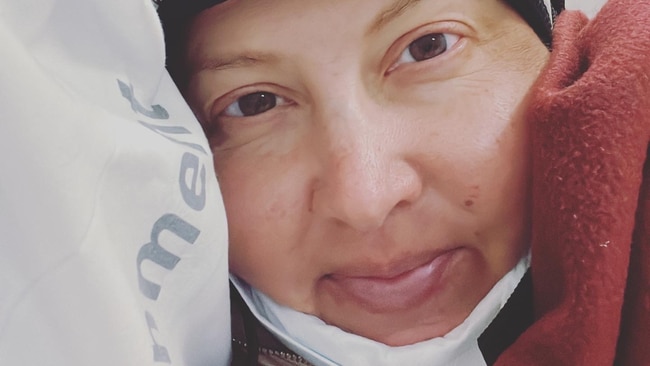
5. "Everything happens for a reason."
This is a common one, and I’ve seen countless patients complaining about it in the Facebook support groups I’m part of. If you are referring to a random set of coincidences that led to the discovery of their cancer, then this is actually ok.
However, if you are referring to actual cancer, then this can be very insensitive. When you are in the midst of something as scary as cancer, being told that there is a bigger reason for it is not helpful.
It can even make your friend question what they did to deserve their illness.
And now onto the good stuff! In order to be the best support you can, below are five helpful things you can say.
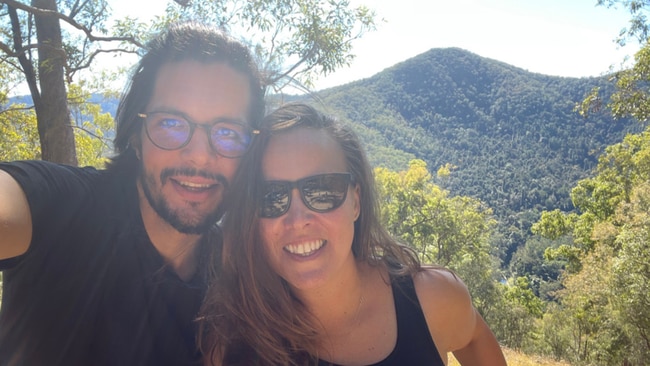
Comments to embrace
1. "I’m so sorry to hear about your cancer, I don’t know what to say."
It is hard knowing what to say to a loved one who has just been diagnosed, and more often than not they will understand you are stuck for the right words. This is a simple sentence you can use to open up a conversation rather than avoid the patient because you are scared you are going to say the wrong thing.
2. "How are you doing?"
This can be a daunting question because the answer can be uncomfortable to hear. However, letting your loved one speak about how they are feeling and just listening can be the most supportive thing you can do.
It is also important to remember they are more than their diagnosis. Bring a sense of normality to their day by telling them about how you are doing. Talk about your kids, partners, work dramas, dating, and the latest shows you’ve been watching. Things that make life, life!
Just be a bit considerate when mentioning aches and pains, I had someone complain about their sporting injury when I had just found out I had huge tumours on my ovaries and needed a hysterectomy. How I would have loved to switch places!
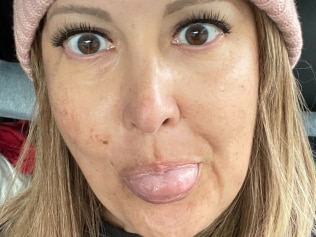
3. "I can do ... To help you"
I had so many people message me saying ‘let me know if there is anything I can do’. This is wonderful, and I appreciate the sentiment, but I didn’t know what I needed, and I hate asking for help.
One neighbour just took the reins and told me they were going to make me a meal on a certain day of the week. This was very welcomed, but I would never have asked for this.
Some things you can do to help are preparing meals, delivering their favourite coffee, picking up groceries, driving them to appointments, taking the bins out or emptying the dishwasher when you visit, offering childcare, taking their children to school or taking your friend on short trips out if they are feeling up to it.
Above all, if you do offer to help make sure you follow through!
4. "Do you want to talk about it?"
This is giving your loved one control over the conversation at that time. Some days it might be all they want to talk about and others they want to pretend it isn’t happening.
If they are happy to talk about it when you ask don’t be afraid to ask questions, it shows you care and want to learn more. Be someone safe to laugh and cry with, but also be aware it is really important sometimes just to listen - it’s okay not to have the answers.
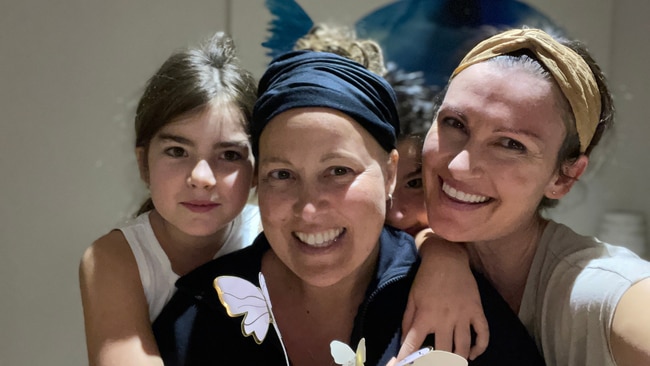
5. "Would you like to come to ...? Would you like to be included?"
I wanted to be treated as normal, I wanted to be asked to go to events, so I had the choice to attend or not. As my treatment went on, I attended less and less - but I appreciated I was always welcomed to group activities.
However, some people find this difficult - so ask how they would like to manage this. Don’t exclude them from group invites without checking in first and asking if they want to be sent pictures of your group of friends or family members having a good time.
Jo Yates was diagnosed with low-grade serous ovarian cancer in 2021, at the age of 42. She is based in Noosa, QLD and is the founder of the FUCancer.network (Fabulous You During Cancer). You can find her here.
Originally published as 5 things you should never say to someone with cancer, plus 5 things you should


